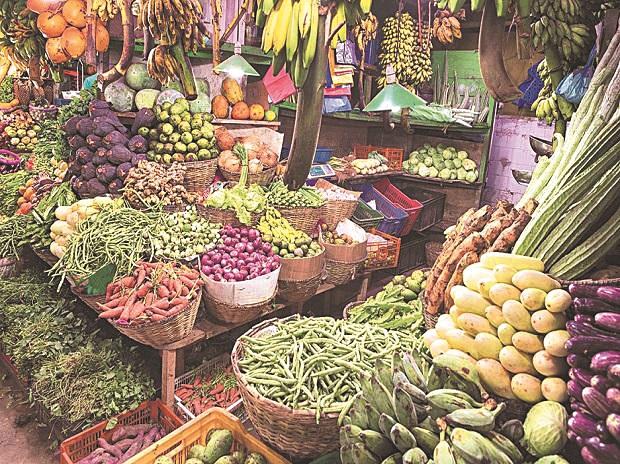Pakistan inflation at 10.9% in May 2021 due to hike in energy, food prices

Pakistan’s inflation remained in double digits for second successive month due to increase in energy, food prices and stood at 10.9 per cent in May.
The Pakistan Bureau of Statistics (PBS) reported on Tuesday that the Consumer Price Index (CPI) rose to 10.9 per cent in May over the same month a year ago. The 10.9 per cent inflation rate is higher than up to 9.8 per cent projection given by the Ministry of Finance last week, reported The Express Tribune.
The inflation bulletin has been released three days after the State Bank of Pakistan (SBP) decided to maintain the policy rate at 7 per cent.
The central bank noted that supply shocks to food and energy still dominate, with a small number of energy and food items in the CPI basket accounting for about three-fourths of the rise in inflation since January, reported The Express Tribune.
The Wholesale Price Index (WPI), which captures prices in the wholesale market, also rose sharply to 19.4 per cent in May over the same month a year ago – a surge of 2.8 per cent in a single month, reported The Express Tribune.
Usually, the retail market prices reach the wholesale price levels in four to six months, indicating that the prices will remain high in the near term.
The government last week approved the average inflation target for the next fiscal year at 8 per cent, indicating that the year-on-year inflation may remain in double digits in fiscal year 2021-22.
PBS reported that the prices remained significantly high in both rural areas and the cities, although the pace of increase was slower than the preceding month but still in double digits. The inflation rate in urban areas increased to 10.8 per cent in May and in rural areas to 10.9 per cent, reported The Express Tribune.
The food inflation rate in cities increased to 15.3 per cent and in villages and towns to 12.8 per cent, which was relatively lower than the previous month.
Non-food item prices also remained elevated both in rural areas at 9.2 per cent and in urban areas at 8.3 per cent.
The food group saw a price increase of 14.8 per cent in May from the same month a year ago. Within the food group, prices of non-perishable food items rose 18.2 per cent on an annualised basis.
The inflation rate for the housing, water, electricity, gas and fuel group – having one-fourth weight in the basket – increased to 8.4 per cent last month.
Average prices for the clothing and footwear group rose 10.6 per cent in May. Prices related to transportation rose 14 per cent due to higher fuel cost, reported The Express Tribune.
In May, chicken prices shot up by 60 per cent, followed by 55 per cent increase in prices of eggs, 31 per cent rise in prices of mustard oil and wheat prices were up by 30 per cent over a year, according to the PBS.
The wheat and wheat flour prices would remain under pressure, as production has fallen short of wheat consumption by at least two million metric tons. The wheat flour prices were higher by 28.5 per cent in May, said the national data collecting agency.
(Only the headline and picture of this report may have been reworked by the Business Standard staff; the rest of the content is auto-generated from a syndicated feed.)
 Dear Reader,
Dear Reader,
Business Standard has always strived hard to provide up-to-date information and commentary on developments that are of interest to you and have wider political and economic implications for the country and the world. Your encouragement and constant feedback on how to improve our offering have only made our resolve and commitment to these ideals stronger. Even during these difficult times arising out of Covid-19, we continue to remain committed to keeping you informed and updated with credible news, authoritative views and incisive commentary on topical issues of relevance.
We, however, have a request.
As we battle the economic impact of the pandemic, we need your support even more, so that we can continue to offer you more quality content. Our subscription model has seen an encouraging response from many of you, who have subscribed to our online content. More subscription to our online content can only help us achieve the goals of offering you even better and more relevant content. We believe in free, fair and credible journalism. Your support through more subscriptions can help us practise the journalism to which we are committed.
Support quality journalism and subscribe to Business Standard.
Digital Editor
business-standard.com

